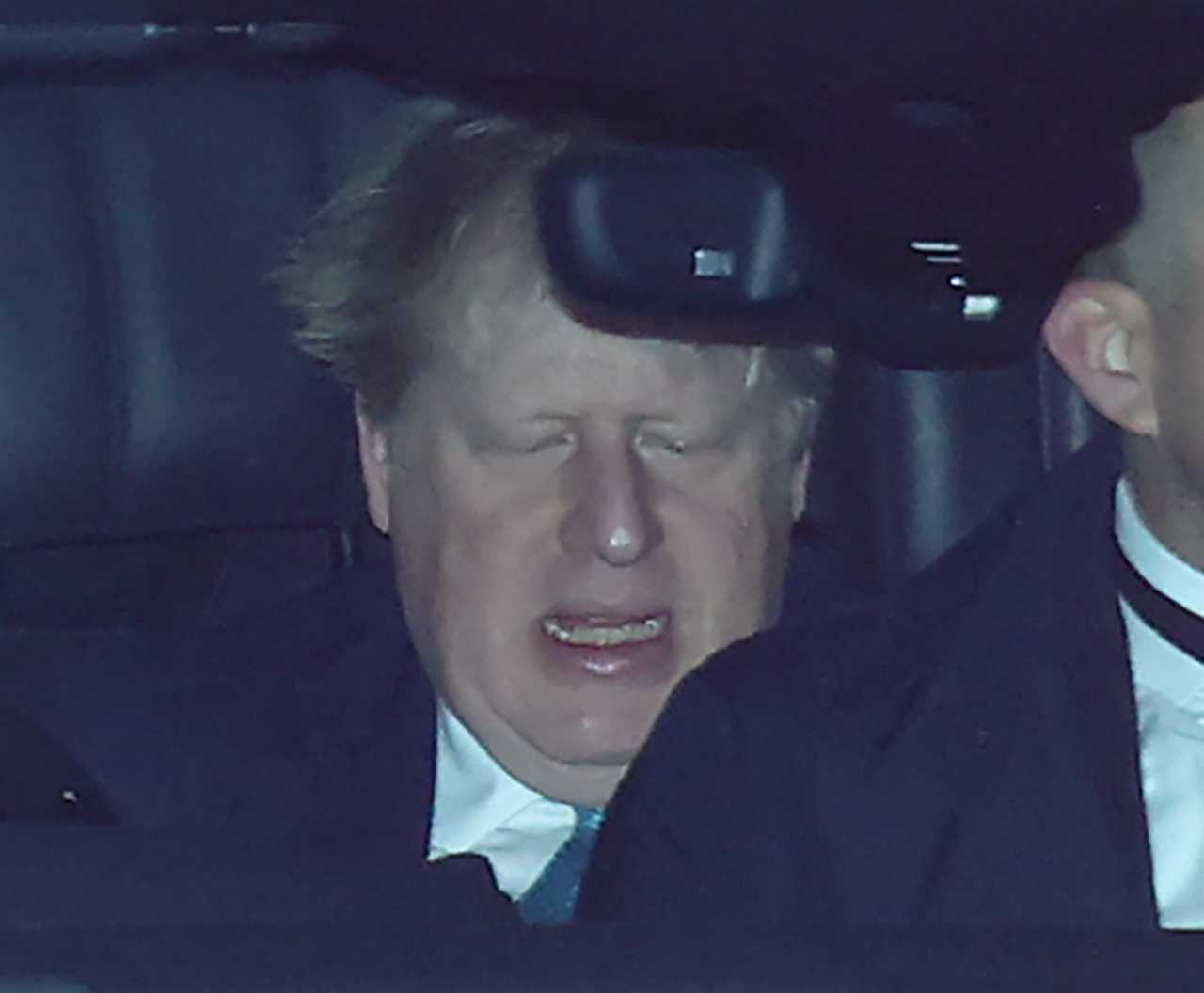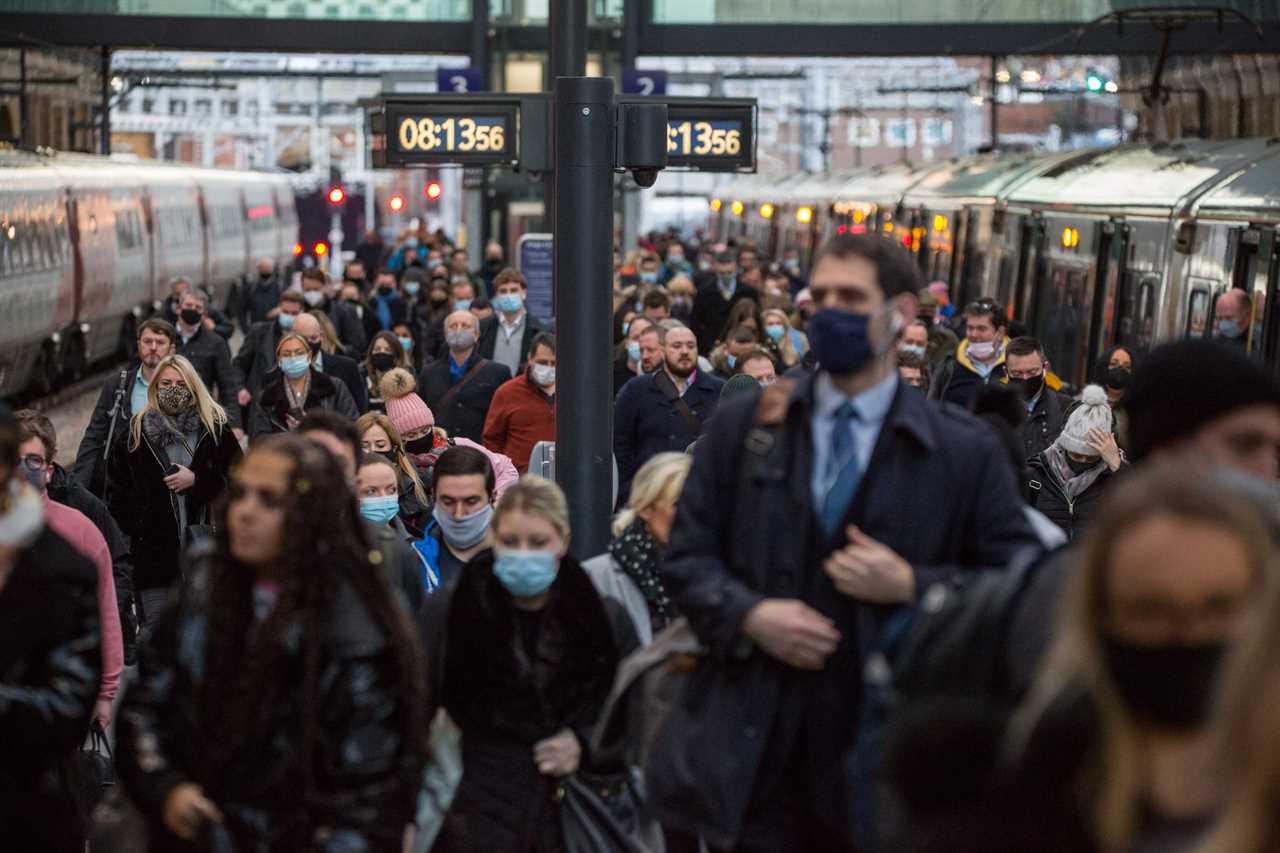BORIS Johnson hailed the end of Covid restrictions in England today as he looks to bolster his position ahead of a probe into No 10 parties.
The PM said the scrapping of Plan B is testament to the success of the booster result and praised Brits for their “amazing response”.

His allies are hoping that Britain becoming the first country to exit the pandemic will help save his premiership.
Top civil servant Sue Gray has completely an investigation into lockdown-busting parties held in Downing St over the last two years.
But the publication of her findings is being delayed by legal wrangling over how much information can be disclosed at the moment.
The Metropolitan Police have launched a separate inquiry into some of the bashes that represent most serious potential breaches of Covid laws.
There have been almost 20 reported parties that took place during both the first and second lockdowns, when social gatherings were banned.
No 10 has been “paralysed” by the growing storm over the parties, which has seen the PM issue a grovelling apology and Tory MPs move to oust him.
If the Gray report finds him personally at fault for the multiple bashes, it could prompt a flood of letters that would spark a confidence vote.
A series of polls have also shown that the Conservatives have been battered by the scandal, with Labour taking a double-digit lead.
The PM will be hoping today’s good news on Covid curbs will help restore his reputation with his own backbenchers and the public.
The planned scrapping of Plan B was accompanied by a surprise announcement this morning that limits on care home visits are also being lifted.
Boris said: “The success of our booster rollout, the tireless work of the NHS and the amazing public response means Plan B measures have ended in England today.
“The pandemic is not over – everyone should remain cautious, and I urge anyone who hasn’t yet got their vaccine to come forward.”
Here’s what Brits now can and can’t do as coronavirus measures are lifted…
FACE MASKS
Rules on wearing masks in public places in England were ripped up at midnight.
Currently, people have to cover up on public transport and in shops, post offices, banks, beauty salons, hairdressers, theatres and cinemas.
From midnight Brits were once again allowed to pop into any of these places without a face mask.
However Brits are still advised to continue wearing them in busy areas or on public transport.
Rules requiring kids to wear masks in classrooms have already been ripped up, with wider guidance advising pupils and teachers to wear coverings in communal areas will going from Thursday.
VACCINE PASSPORTS
Brits will no longer have to show proof of vaccination or a negative test to enter large venues like football grounds and nightclubs.
All domestic use of vaccine passports was dropped at midnight in a move that will please many Tory MPs.
Mr Johnson faced a huge Commons rebellion when the measure was introduced last month and only got it through thanks to Labour.
The current restrictions cover indoor events of more than 500 people and outdoor arenas hosting more than 4,000.
At the time the Government justified jabs papers by saying they were “preferable to closing venues entirely or re-imposing social distancing”.

Follow our Covid live blog for all the latest updates
TRAVEL
All Covid tests for vaccinated holidaymakers will be scrapped from 4am on February 11.
Grant Shapps said that arrivals will only need to fill in a Passenger Locator Form when entering the UK, as long as they have had both jabs.
He said: “From 4am on February 11, and in time for the half-term break, eligible, fully vaccinated passengers arriving in the UK will no longer have to take a post-arrival lateral flow test.
“That means after months of pre-departure testing, post-arrival testing, self-isolation and additional expense, all that fully vaccinaated people will have to do when they travel to the UK is to verify their status via Passenger Locator Form.
“We are therefore scrapping all travel tests for vaccinated people, not only making travel much easier, but also saving about £100 per family on visits abroad.”
In a double-boost for half-term holidays, 12-to-15-year-olds will be able to download the digital proof of vaccination, Shapps confirmed.
CARE HOMES
Sajid Javid revealed on Thursday morning that limits on the number of visitors allowed in care homes will be scrapped from Monday, January 31.
The news will come as a huge boost for elderly and vulnerable Brits who have faced isolation since March 2020.
Care homes will only have to follow outbreak management rules for 14 rather than 28 days.
Meanwhile, self-isolation periods will be cut from 15 days to 10 days for those who test positive – with further reductions if they test negative on days five and six.
Isolation periods for those in care following an emergency hospital visit are also being reduced from 14 to 10 days.
In addition, workers will be asked to start using lateral flow tests before their shifts instead of weekly PCR tests from February 16.
Essential care givers should continue to be able to visit homes even during periods of outbreak affecting a care home.
Until then, Government guidance says every care home resident can nominate up to three visitors who will be able to enter the care home for regular visits.
Visits should be arranged with care homes in advance and a negative test result should be reported by the visitor ahead of the visit.
ISOLATION
Isolation rules are set to expire on March 24 – or sooner – meaning people who test positive for Covid are not legally obliged to isolate.
Currently everyone who tests positive for the virus must quarantine at home for at least five full days – and this is NOT changing.
If you return two negative lateral flow swabs on days five and six you can then leave isolation early.
Fully vaccinated Brits who come into contact with an infected person should test daily but don’t have to isolate so long as they remain negative.
Meanwhile unvaccinated people who are close contacts of Covid sufferers must go into quarantine for 10 days.
There are fines of up to £10,000 for flouting the laws.
It could be scrapped in March however, if cases remain low and no more severe variants emerged.
RETURN TO THE OFFICE
Brits were told to flock back to offices on Friday January 21 in a major boost to the economy.
Cabinet ministers had been pushing the PM hard to ditch the home working rules.
People were ordered to return to teleworking on December 8 in a bid to help stop the lightning spread of Omicron.
Whilst the measures technically took the form of advice, it was followed by many companies with city centres falling quiet.
The Government says that “high levels of home working have played a very important role in preventing sustained epidemic growth”.







